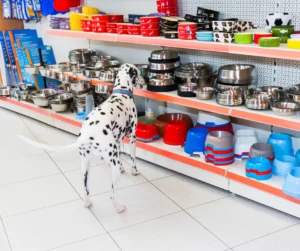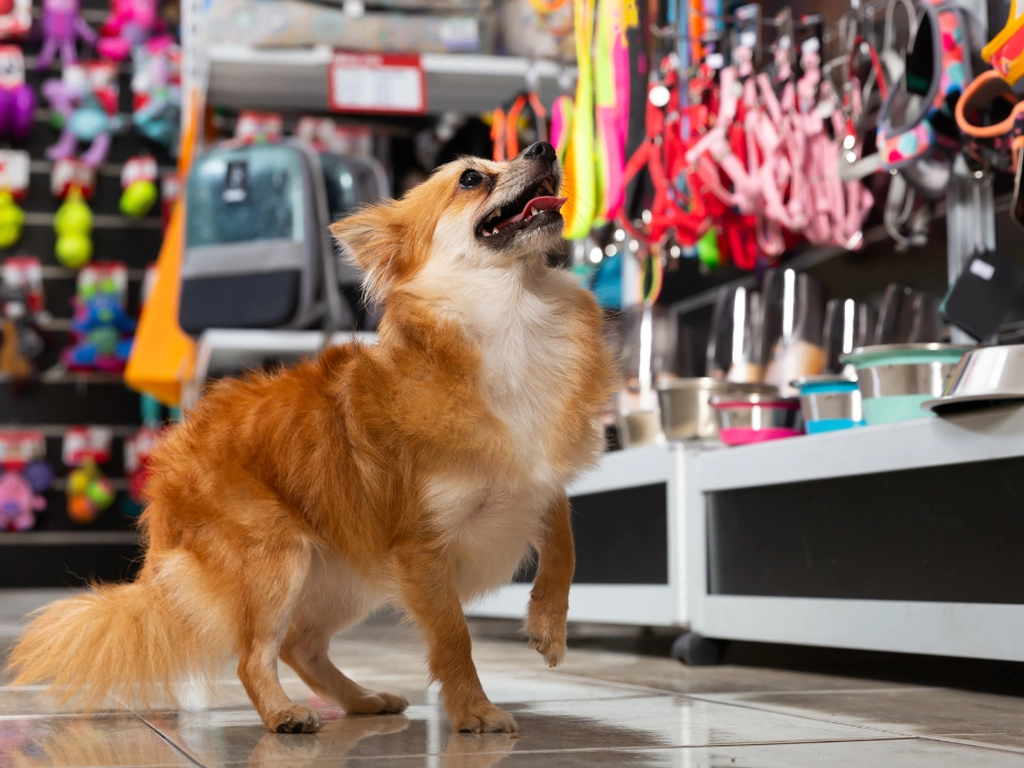Embarking on the journey of socializing a dog is not just a responsibility but also a rewarding experience that lays the foundation for a lifetime of happiness and wellbeing for your dog. This comprehensive guide will provide in-depth insights into the nuances of dog socialization, backed by professional expertise and practical tips.
Why Socialization is Essential for Your Canine Companion
The Influence of Socialization on Behaviour
Socialization is pivotal in shaping a dog’s behaviour. It involves exposing your dog to various environments, people, and other animals in a positive manner, significantly reducing the chances of fear, aggression, and anxiety later in life. A well-socialized dog exhibits confidence, adaptability, and a calm demeanor in various settings.
Enhancing Mental Health Through Social Interaction
The mental health benefits of socialization are profound. Regular social interactions prevent behavioural problems and mental health issues like stress and depression. Dogs, like humans, thrive on companionship and stimulation.
Ideal Timing and Techniques for Socializing Dogs
Critical Period for Puppy Socialization
 The period between three to fourteen weeks of age is crucial in a puppy’s life for socialization. During this phase, puppies are incredibly receptive to new experiences, which can significantly influence their future temperament and behaviour. It is during this time that puppies learn to interact with the world around them, including other dogs, humans, and various environmental stimuli.
The period between three to fourteen weeks of age is crucial in a puppy’s life for socialization. During this phase, puppies are incredibly receptive to new experiences, which can significantly influence their future temperament and behaviour. It is during this time that puppies learn to interact with the world around them, including other dogs, humans, and various environmental stimuli.
For effective socialization during this period:
- Introduce your puppy to a wide range of people, including children, the elderly, and people wearing different types of clothing and accessories.
- Expose them to various sounds such as traffic, household appliances, and other common noises in a controlled and reassuring manner.
- Allow them to experience different textures under their paws, like grass, carpet, and sand.
- Engage them in gentle play with other vaccinated and healthy puppies and dogs.
Remember, positive experiences are key. Any negative encounters during this period can have long-lasting effects.
Socialization Strategies for Adult Dogs
Adult dogs, even those who may have missed early socialization opportunities, can still benefit significantly from structured socialization. However, this process might be slower and require more patience and understanding.
For socializing adult dogs:
- Start with short, positive experiences and gradually increase their duration and complexity.
- Introduce new people and environments slowly. Avoid overwhelming your dog with too many new experiences at once.
- Pay close attention to your dog’s body language. Retreat from a situation if your dog shows signs of stress or discomfort.
- Use treats and praises as positive reinforcement to build pleasant associations with new experiences.
- Regular, gentle exposure to varied situations helps to gradually desensitize an adult dog to new stimuli.
It’s important to note that some adult dogs may have had traumatic experiences, making socialization more challenging. In such cases, it may be beneficial to seek the guidance from us to help guide you through the process Our in-home private dog training lessons are ideal for this situation.
Comprehensive Guide to Socializing Your Dog
Socializing your dog with a variety of people is essential for developing their social skills. Start by introducing your dog to family members and friends in a calm and controlled environment. Gradually introduce them to a broader range of people, including strangers, ensuring that these interactions are positive and non-threatening.
Key tips for introducing your dog to new people:
- Allow your dog to approach people in their own time.
- Encourage people to avoid direct eye contact and to crouch down to the dog’s level to seem less intimidating.
- Use treats and praises to reward your dog for calm and friendly interactions.
- Monitor your dog’s reactions closely and end the interaction if they seem uncomfortable.
Exploring Varied Environments
Exposing your dog to different environments is critical for their development. Take your dog to various places like public parks, pet-friendly stores, and quiet streets. Each environment presents unique stimuli such as different sounds, sights, and smells which are vital for your dog’s cognitive development.
Here’s how to make the most of these outings:
- Start with quieter places and gradually move to busier locations.
- Allow your dog time to explore and sniff, which is an essential part of their learning process.
- Keep interactions controlled and positive, as well as on leash at all times.
- Avoid forcing your dog into overwhelming situations.
Fostering Positive Interactions with Other Animals
Positive interactions with other animals are crucial for your dog’s social development. Start with calm and friendly animals and ensure both animals are comfortable with the interaction.
Effective strategies include:
- Supervised, short playdates with known, vaccinated pets.
- Gradually introducing your dog to a variety of animals, including cats and other smaller pets.
- Monitoring interactions closely and separating the animals if there are signs of stress or aggression.
Remember, every dog is unique, and the pace of socialization will vary. It’s important to be patient and observant, adjusting your approach based on your dog’s individual responses.
Overcoming Socialization Challenges
Addressing Fear and Anxiety
If your dog exhibits fear or anxiety, it’s important to slow down and not force interactions. Use treats to create positive associations and gradually increase exposure.
Managing Aggressive Behaviour
If your dog shows aggression during socialization, it’s crucial to contact our team at K9 Principles, with expertise in dog behaviour and training, we can offer personalized guidance and support to address such challenges.
Tools and Techniques for Effective Dog Socialization
The Role of Training Classes
Dog training classes offer a structured and controlled environment for socialization. Our classes at K9 Principles focus on positive reinforcement techniques, ensuring your dog learns in a friendly, stress-free environment. We host dog training classes in Caledonia and Hamilton.
Utilizing Socialization Aids
Toys, treats, and clickers can be effective aids in making socialization enjoyable and effective. They help in reinforcing positive behaviours and making each new experience rewarding.
Monitoring and Adapting Your Socialization Approach
Observing Behavioural Changes
Keep a close eye on your dog’s reactions and behaviours. It’s essential to adapt your approach based on your dog’s comfort level and progress.
When to Seek Professional Help
If you’re facing persistent issues, seeking professional help is advisable. At K9 Principles, we provide expert advice and tailored training programs backed by 30 years of experience to support your dog’s socialization journey. We are Haldimand County’s top rated dog trainers and provide support to many clients every day through out the greater Hamiton area every day.
Socializing your dog is a journey filled with learning, patience, and joy. By understanding the importance of socialization and following these detailed guidelines, you can ensure your dog enjoys a fulfilling, well-adjusted life. Remember, the journey of socialization is continuous, and every positive experience counts in shaping your dog’s personality.
Conclusion:
For expert advice and tailored training programs to aid in your dog’s socialization, contact us at K9 Principles. From group dog training classes to individualised in-home private training, we have the solution for your pup.





